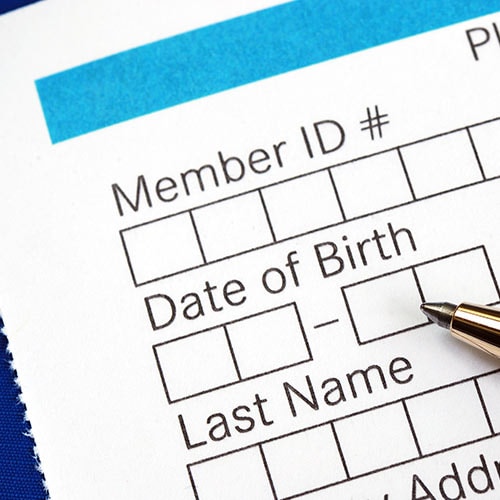Would you hand a printout of all your contacts’ phone numbers, emails, and text history to a stranger behind you in line?
Or, would you leave your passport information written on a whiteboard in the breakroom at work?
How about, would you leave your laptop screen open to your bank account dashboard at a community table in a busy coffee shop while you go to order another almond latte?
Maybe you wouldn’t expose your personal data exactly these ways, but some of the common risks people take with sensitive information are closer to these examples than you might think.
In a digitally connected world, it is important to ensure you’re not leaving our personal information lying around in public. Here are some common ways you might be exposing your private data in public. Better yet, here are some tips on how to erase your data when you leave.
Rental cars and shared car services
Imagine you’ve arrived in a new city to find yourself behind the wheel of a large automobile … rented, that is. After adjusting the seat and the mirrors, you look at the dashboard. You’ll need to need to navigate, and of course you’ll need your “Rental Road Rules” playlist to drive to.
You navigate to the car’s Bluetooth settings to connect your smartphone, and in a few quick taps, you can run all the functions of your phone hands-free through the dashboard interface. Along the way, you very likely gave the car’s software permission to access your contact list, make phone calls, and manage text messages.
Now you’ve just allowed the car to access and copy quite a bit of information from your phone. When it comes time to return the rental, it is important to remember to go back and delete all the data you’re leaving behind. Your friends’ and family’s phone numbers, email addresses, and any text messages you sent or received while you were in the car are all still there and could be accessed by a bad actor later.
Good Car Renter Habits:
- Make deleting your device part of your mental checklist during return. Fill up the gas, check the back seat, open the trunk, and delete your data from the Bluetooth library.
- If you must connect your smartphone to a rented vehicle, use Apple CarPlay or Android Auto. These services only share your device ID and don’t copy info to the vehicle.
Public or borrowed computers
A common way to leave sensitive personal information lying around is when using a borrowed computer, like while visiting family, or when using a public workstation in a library or local business.
As soon as you log in to email, social media, or software services on a new device, that device has the same access to your accounts as your regular laptop or smartphone. Digital devices retain all or some of that access even after moving on from a completed task.
The risky result is that the next person to use that device might find they have access to your email, your social media accounts, or your cloud network storage. Whether that’s a parent or in-law while you’re visiting for the holidays, or that’s the next person in line at a shared workstation—don’t leave it to chance.
When you’re done using a device that isn’t yours, always sign out of everything you signed into while you were working. It’s the best measure you can take to prevent accidentally giving someone else access to your personal accounts.
Good guest computer habits:
- Use an Incognito or Private Browsing window when you’re checking email or social on someone else’s device.
- Never allow a browser to save your password or credit card information, especially when using a device that isn’t yours.
- Clear cookies and browser history for the duration of when you were logged in.
- Enable 2FA on your email and social accounts. Even if someone discovers your login on a borrowed device, 2FA helps deny them access without your permission.
Scanners, copiers, and photo galleries
It’s an odd paradox that some of the most sensitive information frequently has to be shared via the most outdated technologies.
For instance, to set up direct deposit at your workplace, your employer’s payroll company may require a scanned image of a voided check. You remember to bring your checkbook to the office, write, “VOID” at the top of a check, and slide it into the office copier to scan and instruct it to send a PDF to your work email.
On your work laptop, you get the email from the copier and upload that PDF to your payroll company’s website. Then, because you’re a safety-minded person, you delete the PDF download as well as the email from the copier—you’d feel safer knowing your bank account number, routing number, and home address weren’t on your machine.
The problem is that you left the physical check on the scanning bed of the copier. Likewise, most modern scanner/copier combos keep a copy of your scanned document. Go back and retrieve your physical document and delete it from the copier.
But you did everything else right! It’s a good idea to delete scans or images of your driver’s license, bank information, tax documentation, or anything else with sensitive personal data off of your laptop or from the photo gallery of your smartphone.
Good scanner, copier, and photo scan habits:
- Always take back your original after copying or scanning.
- Delete images of any ID or credit cards from your email and from your laptop or smartphone after you’re done with them.
Using your device in public
According to the Pew Research Center, 35% of American workers whose jobs can be done remotely work outside the office full time. In addition to working from home, coffee shops, travel hubs, and just about anywhere are frequented for remote work, as well as likely placed to plug in a laptop or a smartphone.
Despite its ubiquity, using a laptop in public carries certain risks, like the possibility of others monitoring your screen, also called “visual hacking.” The info displayed on your laptop screen can range from personal emails and social media to sensitive documents from work or even your own personal financial information.
Always remember that threat actors combine information. Looking over your shoulder in a café, could they see your social media identity, your bank information, or your email address? By nature of the location, could they go online and find your home address? From your social identity, can they look up your pet’s name?
It’s a good idea to be discreet with your screens and be sure others can’t easily see what you’re doing online.
Good public device use habits:
- Learn how to lock your screen with ease. Win+L on PC, Cntrl-Cmd-Q on Mac. These will instantly block your screen and require a login to resume work.
- Avoid accessing sensitive data or accounts in public or on unsecured public wifi.
- If you work frequently in public, consider purchasing a privacy screen that lays on top of your laptop or smartphone.
We’ve covered some examples to help your situational awareness, and some habits you can take up to protect your data and your data from being picked up by someone else. If you want to step up your game in protecting your identity, there’s no better way to help secure your information that signing up for identity theft protection.
Editor’s note: Our articles provide educational information. LifeLock offerings may not cover or protect against every type of crime, fraud, or threat we write about.
Start your protection,
enroll in minutes.
Copyright © 2025 Gen Digital Inc. All rights reserved. All trademarks, service marks, and tradenames (collectively, the "Marks") are trademarks or registered trademarks of Gen Digital Inc. or its affiliates ("Gen") or other respective owners that have granted Gen the right to use such Marks. For a list of Gen Marks please see GenDigital.com/trademarks.




